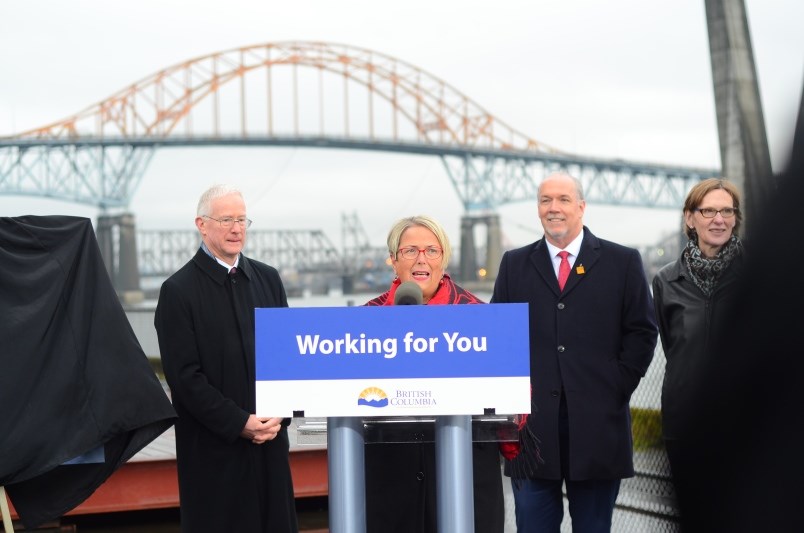The NDP government has made a political calculation that adding hundreds of millions of tax dollars in costs to public infrastructure projects is a risk worth taking, if that’s what it takes to reward key supporters and to stick to ideological values.
That is one takeaway from the government’s recent announcement that major projects costing more than $500 million will have to be covered by a “community benefits agreement.” The 1990s NDP government used a similar framework to build the Vancouver Island highway, and it led to a higher final price tag for that project.
The agreement stipulates all workers on such projects must be unionized and paid at set rates that will increase two per cent every year for at least six years. A brand new Crown corporation is being created to oversee things (just what we need: another Crown corporation).
How much will this cost? Well, the NDP has said these agreements will add between four to seven per cent in extra costs over original estimates.
So, let us apply that math to some big-ticket items currently on the drawing board.
The Broadway subway line is estimated to cost $2.85 billion. A seven per cent increase (given all governments’ tendency to low-ball numbers, I think using the top end of this four to seven per cent scale is more accurate) would boost that project’s cost by about $200 million.
The Surrey LRT line is pegged at $1.65 billion. Extra costs: $115 million.
The second and third phases of the new Royal Columbian Hospital project will cost $1.1 billion. That means an additional $77 million must be added.
The Pattullo Bridge replacement is expected to cost $1.38 billion, but the NDP government says the extra costs are already part of that figure (which is rather hard to believe, given that same cost estimate was in budget documents back in February, long before these agreements were presumably drawn up).
So on those projects alone, the extra costs amount to close to $400 million (and I haven’t even mentioned the dollar impact on whatever finally is decided upon for replacing the Massey Tunnel).
But given that pretty well all major public infrastructure projects go over budget anyway (hello Site C dam; hello B.C. Place stadium; hello Vancouver Convention Centre), the NDP is betting this won’t be much of an issue with voters.
Certainly, the B.C. Liberals won several elections despite coming in well over budget on a number of big projects, so perhaps it is true that budget overruns don’t count for much at the ballot box.
In any event, it is a risk the government will take because it is rewarding its construction union supporters rather handsomely, and it is also coming close to implementing a quota system when it comes to hiring on these projects (the NDP loves social engineering things like quota systems.)
Although no actual numerical targets are included in these agreements, contractors who employ more Indigenous people and women appear to have a better chance at winning contracts to work on these projects.
But these are simply “aspirational goals” (in the words of one government official) and not, as I said, rigid targets. Hopefully, this will indeed to lead to more jobs for Indigenous people and women tradespeople, but there is no guarantee of that happening.
However, the forced unionization of everyone is rigid. Thus, the unions (the 19 that the NDP has specified) get to collect a lot more in union dues, and get to control some new funds that will be created by taking 32 cents an hour on behalf of all workers.
That an NDP government would reward its union supporters is hardly surprising, but it does apply a layer of hypocrisy to many of the criticisms it threw at the B.C. Liberals for years, for doing the same kind of thing for the business sector.
Not all of this may make economic sense for the B.C. taxpayer. However, it may make political sense for a government that is constantly walking a tightrope, trying to balance good public policy against the interests and ideology of its base.
In this case, ideology appears to have won the day.
Keith Baldrey is chief political correspondent for Global B.C.



